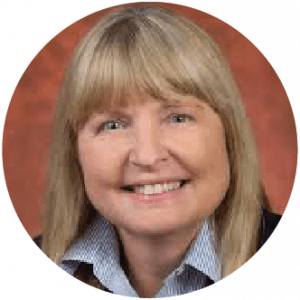Two professors in the College of Communication and Information received awards from the U.S. Fulbright Scholar Program. The program began in 1946 when President Harry Truman signed into legislation the Fulbright Program, named after Senator J. William Fulbright of Arkansas. The goal of the program is to “increase mutual understanding and support friendly and peaceful relations between the people of the United States and the people of other countries.” Today, the Fulbright Program awards roughly 8,000 grants each year to students, foreign students, scholars, teachers, and professionals.
 Nancy Everhart, a professor in the School of Information, will be using her Fulbright funding to travel to China’s Beijing Normal University from August 25 to February 1, 2020. There, she will be sharing her research on how libraries can better serve students.
Nancy Everhart, a professor in the School of Information, will be using her Fulbright funding to travel to China’s Beijing Normal University from August 25 to February 1, 2020. There, she will be sharing her research on how libraries can better serve students.
“My project is called ‘Information Literacy in an Evolving World Power,’” Everhart said. “I will be teaching future librarians about information literacy and how they might work with students to be information literate,” she says.
 Andy Opel, a professor in the School of Communication, will be heading to Norway to create a series of documentaries with students at the University of Bergen for the Climate Witness Project Norway. They will interview local Norwegian residents about changes they have personally seen in the climate.
Andy Opel, a professor in the School of Communication, will be heading to Norway to create a series of documentaries with students at the University of Bergen for the Climate Witness Project Norway. They will interview local Norwegian residents about changes they have personally seen in the climate.
“These eyewitness testimonies of changes in the natural world, occurring over the course of just one lifetime, will provide powerful accounts that help illustrate the more abstract issue of climate change,” Opel says. “Then, we’ll include hard data that confirms the larger pattern of how our climate is changing.”
In the spring, Opel plans to use these documentaries to help create a series of virtual reality videos that show those changes in the natural environment. “These pieces will build on the work of The New York Times’ 360-video project, The Guardian’s ‘Virtual Reality Journalism’ project and the emerging trends of immersive journalism that allow audiences, in effect, to witness climate change for themselves through the new media of virtual reality,” Opel says. “Both sets of short-video documentaries will be designed for online distribution through social media.”

